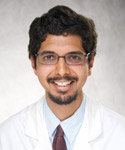Resilience. That word has been living rent free in my head for the past three weeks. And rent free is a bit of understatement. It all began at the end of a very productive clinic, when the trainee and I sat down to discuss our reflections on the interactions with patients that we’d had in…









